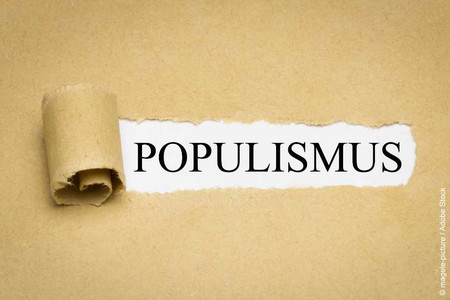Ebru Ece Özbey, research associate at the Cologne Centre for Comparative Politics, answers the question.
Populism is a term we hear often, but its precise meaning remains elusive. It is often used to describe political leaders, parties, or movements, but at what point can we definitively label someone a populist? With recent election results worldwide—including Donald Trump’s return to office in the U.S.—populism is once again in the spotlight, underscoring the importance of addressing this question.
Much of the political science literature on populism focuses on resolving the ambiguity surrounding the concept. Scholars have proposed various definitions, including populism as a political logic, strategy, or style of communication. Among these, the ideational approach, which conceptualizes populism as a thin-centered ideology, has gained particular influence. This perspective provides insights into populism both as a rhetorical tool employed by politicians (the supply side) and a set of attitudes held by citizens (the demand side). It defines populism as a moralistic (rather than programmatic) set of ideas offering a narrow and adaptable framework for how democracy should function, allowing it to attach itself to other ‘full’ or ‘thick-centered’ ideologies, such as liberalism or socialism, which provide broader worldviews and structured solutions to societal and political issues.
At its core, populism is defined by its moral distinction between two opposing groups: the pure people and the corrupt elite. This dichotomy fuels its anti-elitist nature. Populists claim to represent the will of the ‘real’ or ‘common’ people, portraying elites as self-serving, detached, and indifferent to the needs of ordinary citizens. Populism is not inherently aligned with the political left or right. On the left, populists often target big corporations, financial institutions, or wealthy elites who are perceived to exploit the working class. On the right, populists may focus on liberal intellectuals, cosmopolitan elites, or political establishments accused of eroding national identity or traditional values. This narrative often reduces complex societal dynamics into an emotionally charged ‘us versus them’ framework, making it both compelling and accessible.
Another defining characteristic of populism is its anti-pluralist stance. Populists frequently reject the notion that society is composed of diverse groups with equally legitimate interests. Instead, they assert that they alone represent ‘the people’, dismissing critics and opposition as illegitimate or even adversaries. This tendency can result in the erosion of (liberal) democratic norms, as populists may undermine institutional checks and balances in their pursuit of unchallenged authority.
So, when does someone cross the line into populism? It is important to emphasize that not all critiques of elites or institutions are populist. Democracies thrive on constructive criticism and accountability. What sets populists apart is their inclination to delegitimize opponents (the elite), while claiming exclusive representation of the people. By framing political conflicts as a moral divide between a virtuous majority and a corrupt minority, populists risk exacerbating societal polarization, which is when they can become a threat to liberal democratic processes.
